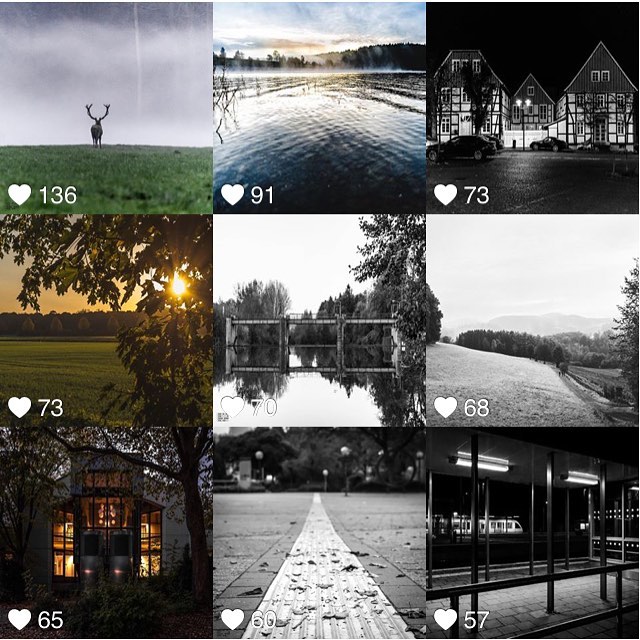My Journey with Copytrack | Christian Fischer
Sadly, nearly everyone who creates photos and puts them online knows about discovering their own photos on random sites. The reasons for this vary. Often people don’t know that things they find online are not automatically possessable. Online users often don’t realise that images are protected by rights, and that you need a license to use them. People often just take and use images online because everyone else is doing it, and because you can, seemingly, get away with it. In other words, the internet is just the world’s biggest photocopier. Every time I share something on Facebook, pin something on Pinterest, or upload an Instagram image – I am creating copies of my work or at least opening it up to another public platform. It’s frustrating, because images should be sold. The worst is when companies, agents, professional loggers, those who should know about the law, steal from me.
Even Google doesn’t find everything
I could check every two days on Google Images and start a search for all of my images. However, between us, even Google doesn’t find everything. I have shared around 1000 images on Flicker, in my Blog I have around another 100 images – who wants to check that many images?
Issue with other services
Now there are services who are happy to do the search for me. In the past I have used a similar service but I never took it seriously because it offered only certain number of images and there were costs involved. I completely understand that the service provider also needs to earn money, but I couldn’t decide for me, if an account with costs was worth it, so I deleted my account.
Copytrack only wins when you do
I have been on Copytrack now for a short time. Copytrack has its own individual search algorithms and its business model is setup differently – you only pay when an unauthorised use is found and the post-licensing process was a success. Only when successful does Copytrack get a cut. The complete process of a post licensing goes as follows: a written letter with an offer of the post-license then Copytrack, if needed, follow up with the legal action. This sounds reasonable to me.
Unlimited image upload
After signing up I could upload up to a 1000 of my images. For me that was definitely not enough, but I spoke with a friendly customer support member that removed the limit straightaway. But that wasn’t it, images that are already on EyeEm don’t have to be uploaded again, they are automatically in the app (I hope that more portals are added to that list in the future).
Whitelisting makes the search easier
The first sighting reports came quickly, and apparently, I share my photos a lot in different platforms online. To start Copytrack listed all the sites where my images were found. You can “white list” individual images, or complete domains, so that the images found a reduced to only websites where it could be a possible copyright abuse.
Commercial usages only
Copytrack does not follow up any private usages – for example, images found on a family blog, where someone unknowingly used the beautiful sun set as a header image for their article. There are of course individuals that share the image with full knowledge they shouldn’t, but on the whole I think it’s a good decision to not go after private individuals.
The process was logical and always transparent
After a few weeks I discovered two new finds while logging in. Both larger, clearly professionally and commercially operated online portals, one in Switzerland and one in Hungary. In all honesty, if I had discovered this by chance alone, I would have shrugged my shoulders at this point – although I might have written to the Swiss. Through Copytrack, however, I was able to turn these finds into a “case” and commission Copytrack directly to take care of it. The process was logical and always transparent.
Copytrack are easy to talk to
If I had questions, I could ask Copytrack directly. But also questions from the caseworker who took care of my pictures appeared in the portal. We also discussed the often-dreaded question “What can/should I calculate for a picture?” but in a friendly and advisory manner. One point of criticism, it’s a pity that I didn’t get any intermediate notifications, so instead while the cases were running I logged in very regularly to look for updates.
The money was in my account on the same day
Since Copytrack only sends out an offer for post-licensing with a corresponding deadline and because portals used this deadline until the very last second, it takes a few weeks. But in the end, I found two PDFs per case in the mail: One copy of the voucher for the post-licensing and an invoice from Copytrack for the commission. And I was even more surprised as the money was in my account on the same day.
Copytrack is completely recommendable
My conclusion after a few months and two cases later: Copytrack is completely recommendable. If you Google after reports of experience, you find in the appropriate forums naturally also the cries for help, “Help, a company Copytrack has contacted me”. Of course, the discussions also include the word “infringement” – and there are lawyers that offer help against Copytrack. But I think that Copytrack has found a good solution with its way of pursuing commercial uses only. And it works very well for me. I much prefer to pay commission from money I get instead of not getting any money.



I have been waiting for 2 – 3 years for Copytrack to follow up many cases that supposedly when to their lawyers. They refuse to answer me if they have even received the claims. Every time I ask for an update they threaten to close the claims with no more info. I’m getting the feeling there are no lawyers looking at my claims at all. Can you advise as I’ve spent hundreds of hours and I used to recommend this business to everyone. Thanks